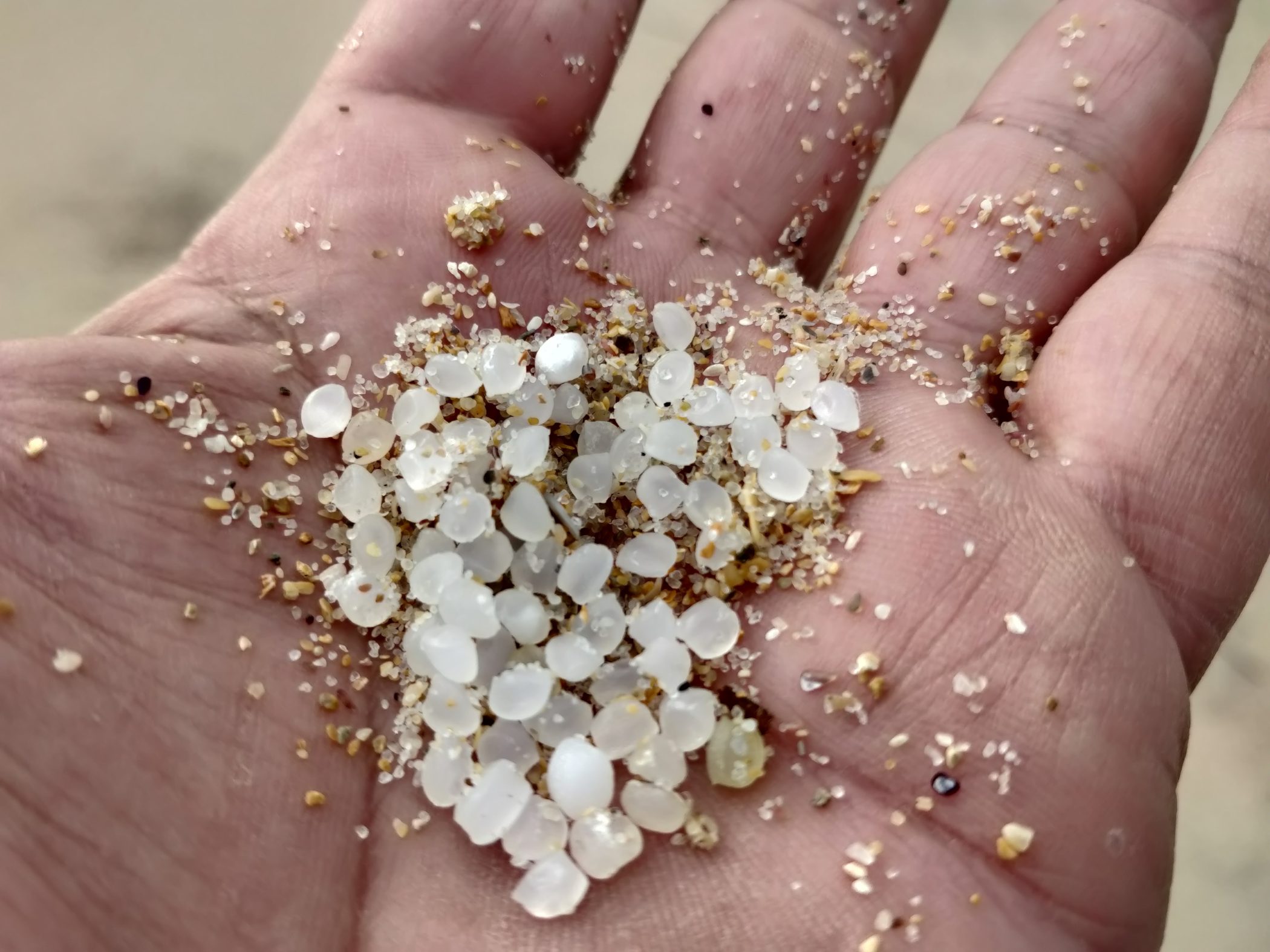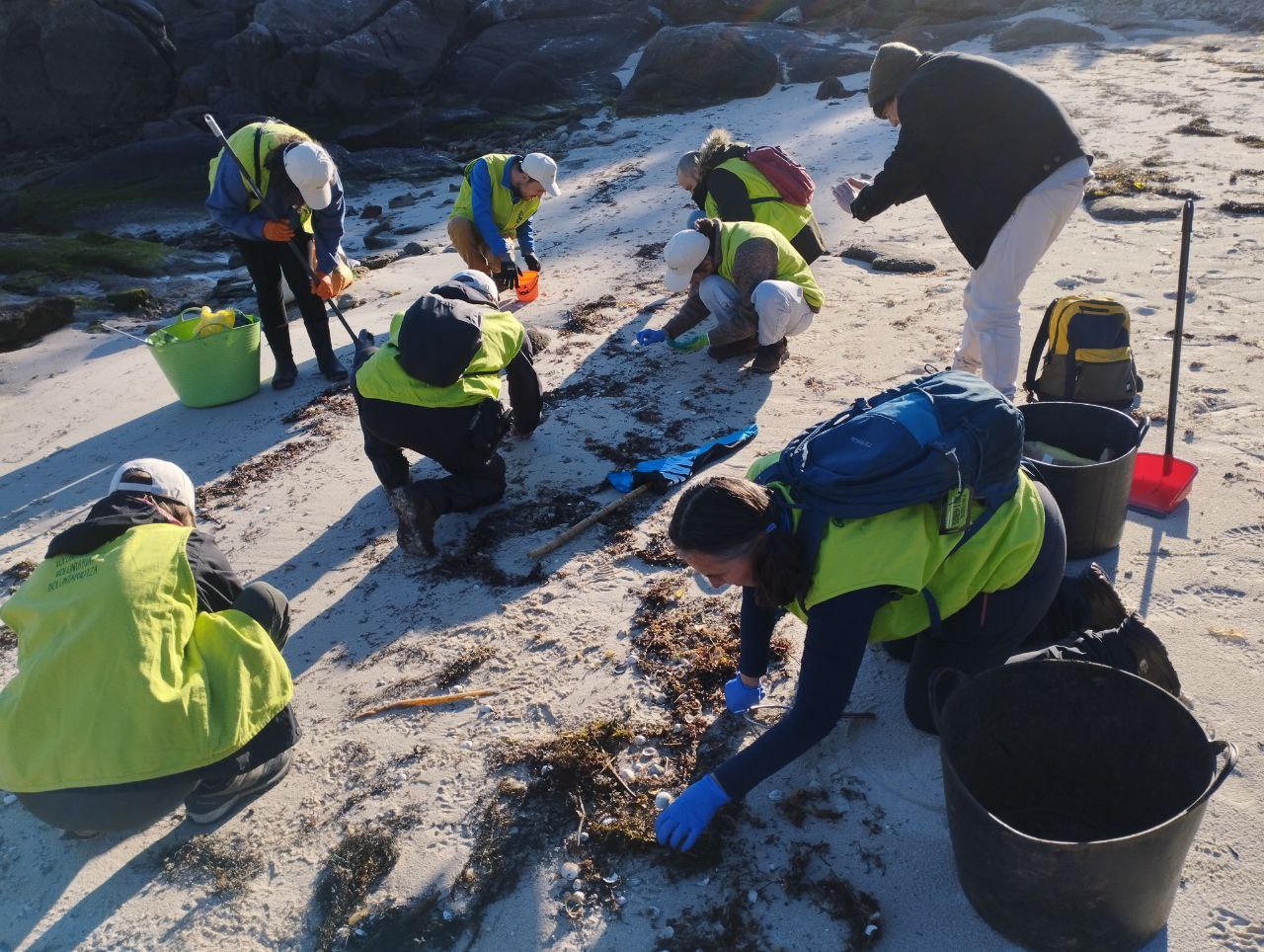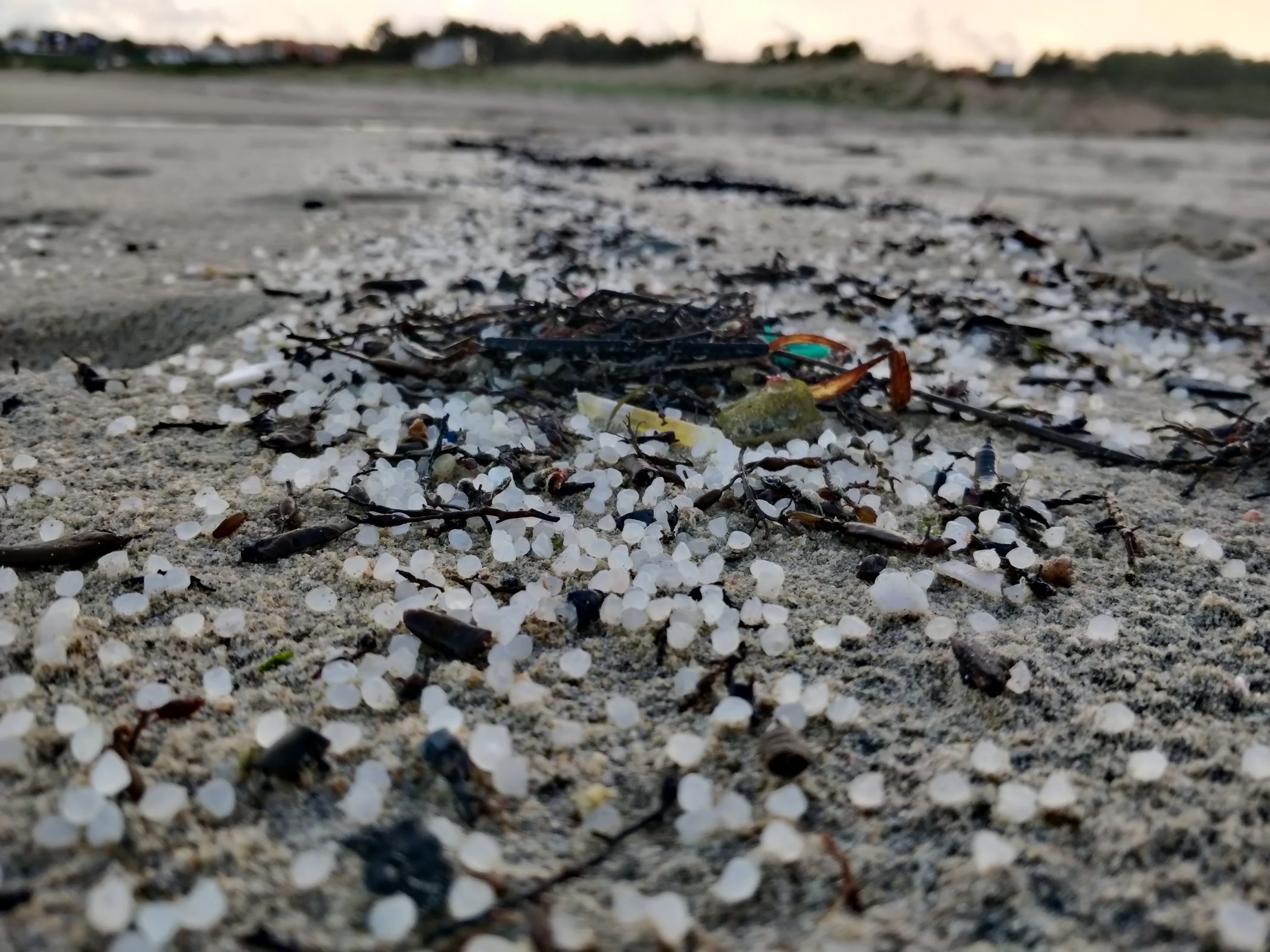Plastic White Tide In Galicia, Spain
The coast of Galicia is once again facing an ecological crisis. For weeks, millions of plastic pellets have been flooding and polluting the marine ecosystem along much of the Galician coast. Sometimes the sacks are intact and once spotted they can be easily retrieved, but unfortunately, many are damaged and millions of pellets are spreading through the water column, reaching the beaches with every tide.

The disaster began on December 8 when the ship Toconao (Maersk) lost 6 containers off Viana do Castelo, in Portuguese waters. One of the containers carried 25kg sacks of plastic pellets from the Polish company Bedeko Europe. There is no information about the other 5 containers. The strong currents in this area of the Atlantic did the rest, carrying the spill towards the Galician Rías Baixas.
The first coastal news came on the 13th, when the first sacks washed up on the shores of the Corrubedo wetlands, in Ribeira and elsewhere in the Muros-Noia estuary. In the days that followed, an increasing number of local authorities and ecological and environmental groups began to draw attention to what was happening.
It was only on January 4th that we realized the scale of this ecological disaster, when the shipowner’s lawyer estimated that the container carried a thousand sacks of pellets. At 25 kilos per sack, we are talking about a total of 25,000 kilos of plastic pellets spilled on the coast, from the Vigo estuary to some areas of Asturias, with a particular impact on the Rías Baixas and Costa da Morte.
The Xunta de Galicia then activated Level 1 of the Camgal plan (Territorial Contingency Plan for Accidental Marine Pollution). This emergency level is intended for pollution incidents of low severity and extent.
On January 5th, the Spanish government informed the Xunta that it had to activate Level 2 in order for the national government to provide «effective support» for the collection and cleaning of the plastic pellets that had reached the Galician coast. Eventually, the Xunta activated Level 2 on January 9th.
Since then, many individuals have organized themselves to clean up the Galician coast, but so far there has been no official communication from any administration on how to proceed with the collection of the pellets or what their composition is, and their toxicity is still unknown.

Environmental impacts
Pellet pollution is a major global problem, as is plastic and microplastic pollution in general. In the European Union alone, an estimated 160,000 tons of plastic pellets are dumped into the environment every year, and up to 12 million tons of plastics of all kinds enter the oceans every year. What is happening in Galicia these days is serious, but it is only a microcosm of a problem with global consequences.
Unfortunately, almost a month after the spill, we still have no official information on the composition of the pellets. Although very small in size, they are highly polluting elements that will certainly end up in the food chain. Attempts to contact the manufacturer whose brand name is printed on the sacks, Bedeko Europe, to request the technical information of the product have been unsuccessful, and the company has passed the responsibility to the shipping company Maersk.
It is likely that many marine organisms -from fish to birds- will ingest the pellets, since they look like small eggs and can be mistaken for food. This can cause stomach problems for the animals and even death, and the pellets might end up in our food chain.
It is also very likely that they will gradually break down into even smaller microplastics and affect filter feeders.
Moreover, these plastic components eventually absorb other marine pollutants and become more hazardous over time.

Health impacts
Although we do not yet know the full extent of the adverse impacts, as we do not yet know the composition of the pellets and their potential toxicity, numerous studies and research show the negative impacts of plastic on human and ecosystem health throughout their life cycle. The European Commission states that exposure to microplastics in laboratory studies has been associated with a range of negative (eco)toxic and physical effects on living organisms, and that microplastics are likely to be toxic to humans.
In addition, the pellets collect additional toxins on their surface that are incorporated into the food web when ingested by marine species, increasing the potential risk of the pellets.
Greenpeace demands
As in other ecological crises, we once again denounce the lack of information from the Xunta de Galicia and the Spanish government about the composition of the pellets and their possible toxicity, although almost a month has passed since the containers fell off the ship. While hundreds of people are organizing themselves to go to the beaches and help mitigate the disaster, there is no official communication about the composition and potential toxicity of the pellets, nor any recommendation from the Xunta de Galicia on how to collect them without harming the environment.
We demand to know the total amount of cargo lost, as well as the contents of the other 5 containers that fell from the ship, so that we know the extent of the problem and what to expect.
To date, the Xunta has not given any instructions on how to deal with the pellets washed up on the beaches, nor has it set up any organizational structure to coordinate the cleanup, despite the fact that the Territorial Contingency Plan for Accidental Marine Pollution (Camgal) includes protocols for volunteer intervention in the event of spills on the coast.
We demand an urgent assessment of the disaster and the establishment of a mid- to long-term study to monitor the possible future effects.
Those responsible for the cargo may also be subject to legal action.
Given the authorities’ lack of action, organized civil society is stepping in when governments are unable to respond quickly. It is clear the Camgal plan is not sufficient to establish mechanisms that allow for a rapid response to the frequent ecological disasters in Galicia.
Comentarios
Why are they(pellets) also washing up on Catalonia’s beaches?